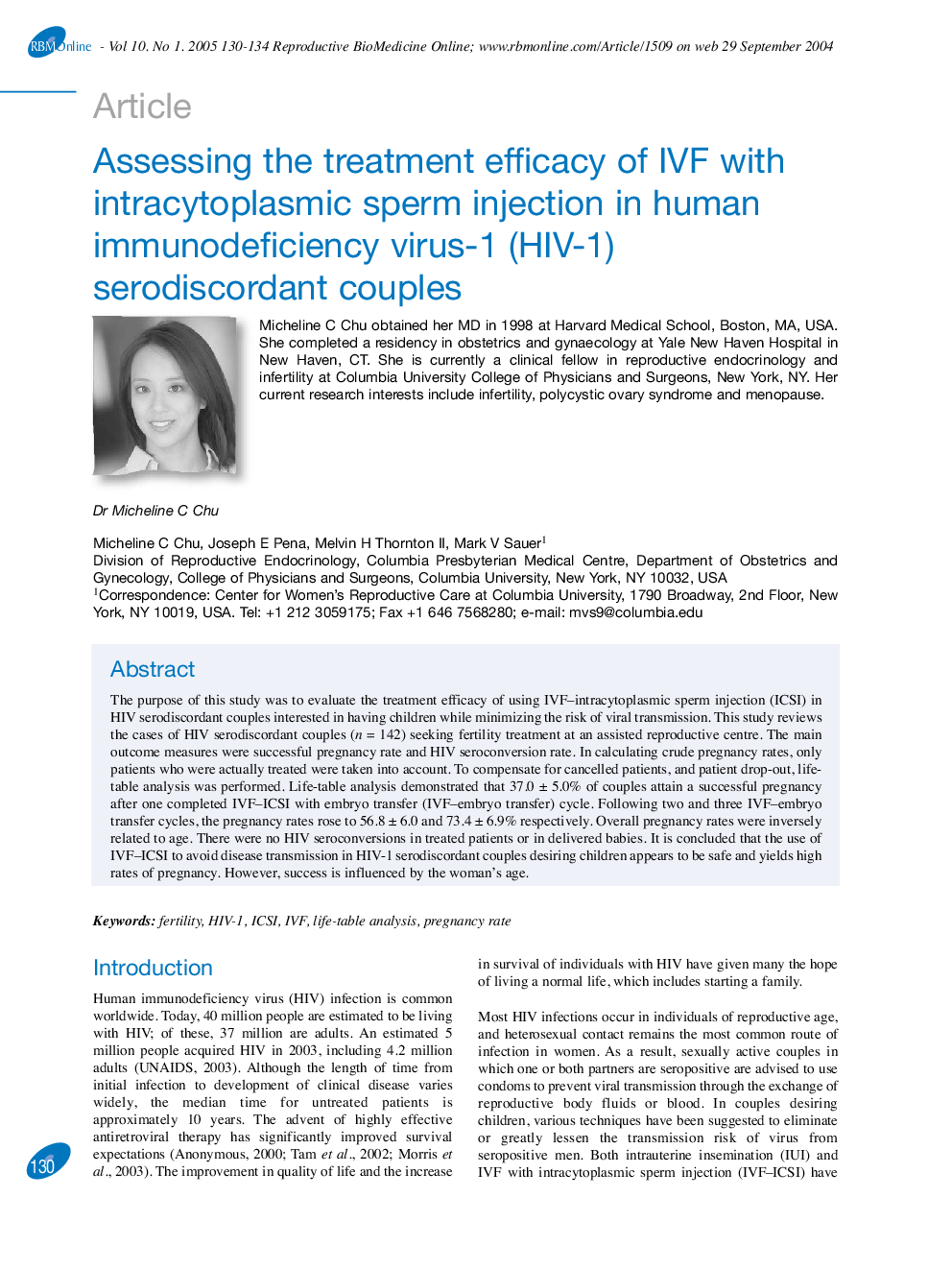| Article ID | Journal | Published Year | Pages | File Type |
|---|---|---|---|---|
| 9334934 | Reproductive BioMedicine Online | 2005 | 5 Pages |
Abstract
The purpose of this study was to evaluate the treatment efficacy of using IVF-intracytoplasmic sperm injection (ICSI) in HIV serodiscordant couples interested in having children while minimizing the risk of viral transmission. This study reviews the cases of HIV serodiscordant couples (n = 142) seeking fertility treatment at an assisted reproductive centre. The main outcome measures were successful pregnancy rate and HIV seroconversion rate. In calculating crude pregnancy rates, only patients who were actually treated were taken into account. To compensate for cancelled patients, and patient drop-out, life-table analysis was performed. Life-table analysis demonstrated that 37.0 ± 5.0% of couples attain a successful pregnancy after one completed IVF-ICSI with embryo transfer (IVF-embryo transfer) cycle. Following two and three IVF-embryo transfer cycles, the pregnancy rates rose to 56.8 ± 6.0 and 73.4 ± 6.9% respectively. Overall pregnancy rates were inversely related to age. There were no HIV seroconversions in treated patients or in delivered babies. It is concluded that the use of IVF-ICSI to avoid disease transmission in HIV-1 serodiscordant couples desiring children appears to be safe and yields high rates of pregnancy. However, success is influenced by the woman's age.
Related Topics
Health Sciences
Medicine and Dentistry
Obstetrics, Gynecology and Women's Health
Authors
Micheline C Chu, Joseph E Pena, Melvin H II, Mark V Sauer,
